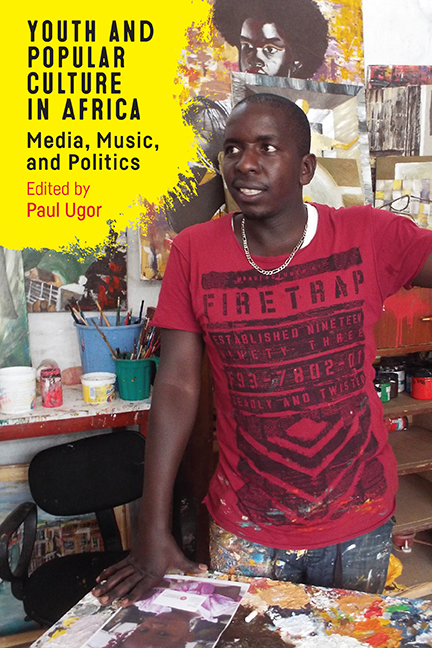Book contents
- Frontmatter
- Dedication
- Contents
- Preface
- Introduction: Youth, Media, and Popular Arts Culture in Contemporary Africa
- Part One Media Globalization, Popular Afro Hip-Hop, and Postcolonial Political Critique
- Part Two Popular Online Media and Democratic Participation and Engagement
- Part Three Popular Arts, Everyday Life, and the Politicization of Culture
- Afterword: Young People and the Future of African Worlds
- Notes on Contributors
- Index
Introduction: Youth, Media, and Popular Arts Culture in Contemporary Africa
Published online by Cambridge University Press: 26 May 2022
- Frontmatter
- Dedication
- Contents
- Preface
- Introduction: Youth, Media, and Popular Arts Culture in Contemporary Africa
- Part One Media Globalization, Popular Afro Hip-Hop, and Postcolonial Political Critique
- Part Two Popular Online Media and Democratic Participation and Engagement
- Part Three Popular Arts, Everyday Life, and the Politicization of Culture
- Afterword: Young People and the Future of African Worlds
- Notes on Contributors
- Index
Summary
In many places, and especially outside relatively privileged urban centres, young people are finding creative means of articulating their aspirations—and their alternatives to established social and political orders—using cultural idioms and establishing modes of association that may be invisible and obscure to national policy-maker
—Alex de Waal, “Realizing Child Rights in Africa.”Since the late 1980s, the lives of young people in Africa have become a major subject of interest in African cultural studies. Currently estimated to be about four hundred million of the world's total youth population of 1.2 billion, and according to the African Union, approximately 77 percent of the continent's total inhabitants under the age of thirty-five, young people and children in Africa have taken center stage in African studies in recent years, not just because of their sheer numbers but primarily because of the multiple ways in which they have exploded as powerful social actors in the continent's public domain and on the world stage. Across the continent and beyond, African youth have become key players and influencers in the realms of politics, economy, the culture industry, religious movements, and all kinds of activist endeavors for social justice and change. But as Mamadou Diouf has rightly observed, “The dramatic eruption of young people in both the public and domestic spheres seems to have resulted in the construction of African youth as a threat, and to have provoked, within society as a whole, a panic that is simultaneously moral and civic.”
The dread and anxieties about the outburst and prominence of African youth in both local and transnational public spaces have prompted several studies that have documented and analyzed the social experiences of their lives, especially the numerous ways in which young people in Africa have been impacted adversely by global and local political-economic forces. These studies demonstrate clearly how the enduring legacies of colonial domination, compounded by failed postcolonial governance and the harsh social conditions triggered by aggressive liberalization and privatization, have left many young people and children in Africa in dire situations. Most young people in Africa live amidst social crises marked by chronic economic decline, joblessness, limited access to quality education and training, poor health-care services, lack of social amenities, and a general social climate of privation, insecurity, and uncertainty.
- Type
- Chapter
- Information
- Youth and Popular Culture in AfricaMedia, Music, and Politics, pp. 1 - 34Publisher: Boydell & BrewerPrint publication year: 2021



